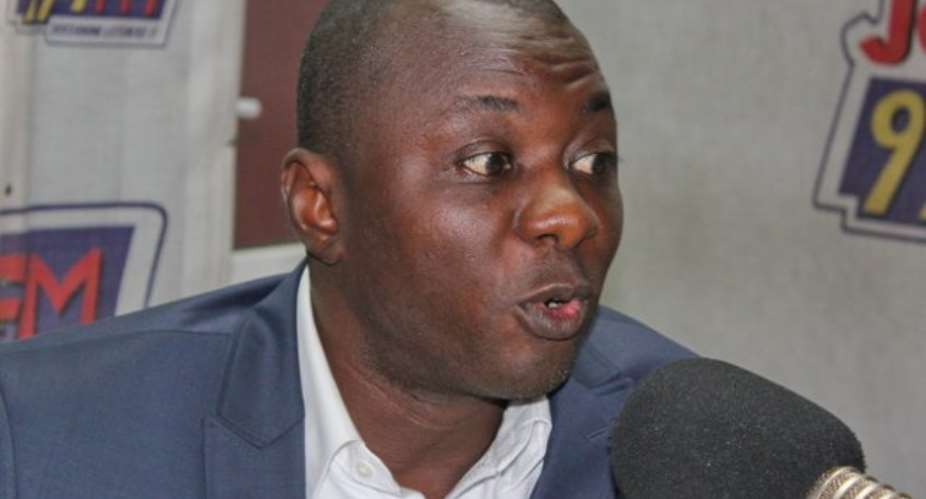The Africa Center for Energy Policy (ACEP) has described Ghana’s 2017 energy outlook as everything but encouraging.
ACEP Executive Director, Dr Mohammed Amin Adam says this has been necessitated by the challenges the nation’s energy sector has faced since the start of 2016.
He cited the recent challenges with crude oil production at the Jubilee Field and the declining oil prices on the international market as some of the contributing factors to the bleak energy prospect of the country.
“The energy sector outlook for 2017 presents uncertainty…we are likely not going to add a significant level to the production [so] we need to be able to increase investment in the oil and gas sector,” he said.
The ACEP Director made these remarks during an expert panel discussion on the organisation’s Citizens Energy Manifesto held at the Alisa Hotel in Accra Tuesday.
With 41 days to the presidential and parliamentary polls, ACEP wants Ghanaians to carefully scrutinize the policies of political parties especially on the energy sector before voting for their preferred candidates.
The governing National Democratic Congress (NDC) has promised in its 2016 manifesto that it would increase power generation assets, develop more sustainable power sources, encourage energy conservation and increase generation capacity in excess of 5,000 MW by 2021.
It promised to increase power generation through other alternatives such as coal power. This is different from the policy direction of the New Patriotic Party (NPP) that wants to use a geothermal plant to boost generation.
The Convention People’s Party (CPP) has also pledged to use nuclear power.
Dr Amin Adam expressed satisfaction in the energy policies of the political parties, saying they have all benchmarked their strategies against the Center’s Energy Manifesto document which details how Ghana’s energy crisis could be addressed.
There is a significant level of consensus among the political parties on the energy situation in Ghana, he said, noting the differences in approach.
According to him, out of a total of 28 programmes the political parties outlined to solve the energy crisis, “they have consensus on more than 10.”
The parties he said, agree to “increase local content but differs in how to achieve it, they agree to fight corruption in the oil sector but differ in solution, and agree to improve transparency on oil and gas but disagree on the solutions.”
Even though he could not vouch for the feasibility of the many policies outlined by the political parties, Dr Amin Adam commended them for their interest in helping the nation come out of the energy challenges.
Story by Ghana | Myjoyonline.com | Austin Brakopowers | Email: [email protected]





 Akufo-Addo commissions Phase II of Kaleo solar power plant
Akufo-Addo commissions Phase II of Kaleo solar power plant
 NDC panics over Bawumia’s visit to Pope Francis
NDC panics over Bawumia’s visit to Pope Francis
 EC blasts Mahama over “false” claims on recruitment of Returning Officers
EC blasts Mahama over “false” claims on recruitment of Returning Officers
 Lands Minister gives ultimatum to Future Global Resources to revamp Prestea/Bogo...
Lands Minister gives ultimatum to Future Global Resources to revamp Prestea/Bogo...
 Wa Naa appeals to Akufo-Addo to audit state lands in Wa
Wa Naa appeals to Akufo-Addo to audit state lands in Wa
 Prof Opoku-Agyemang misunderstood Bawumia’s ‘driver mate’ analogy – Miracles Abo...
Prof Opoku-Agyemang misunderstood Bawumia’s ‘driver mate’ analogy – Miracles Abo...
 EU confident Ghana will not sign Anti-LGBTQI Bill
EU confident Ghana will not sign Anti-LGBTQI Bill
 Suspend implementation of Planting for Food and Jobs for 2024 - Stakeholders
Suspend implementation of Planting for Food and Jobs for 2024 - Stakeholders
 Tema West Municipal Assembly gets Ghana's First Female Aircraft Marshaller as ne...
Tema West Municipal Assembly gets Ghana's First Female Aircraft Marshaller as ne...
 Dumsor is affecting us double, release timetable – Disability Federation to ECG
Dumsor is affecting us double, release timetable – Disability Federation to ECG
